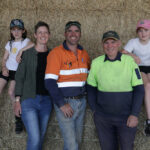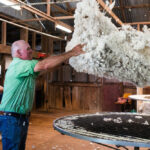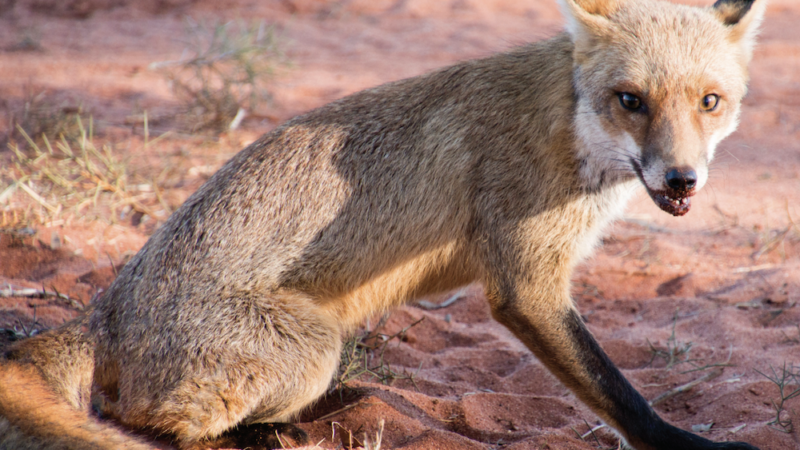On February 24, 2022, the day Russia launched its invasion of Ukraine, an old woman…
The rescue sanctuary that’s simply donkey business
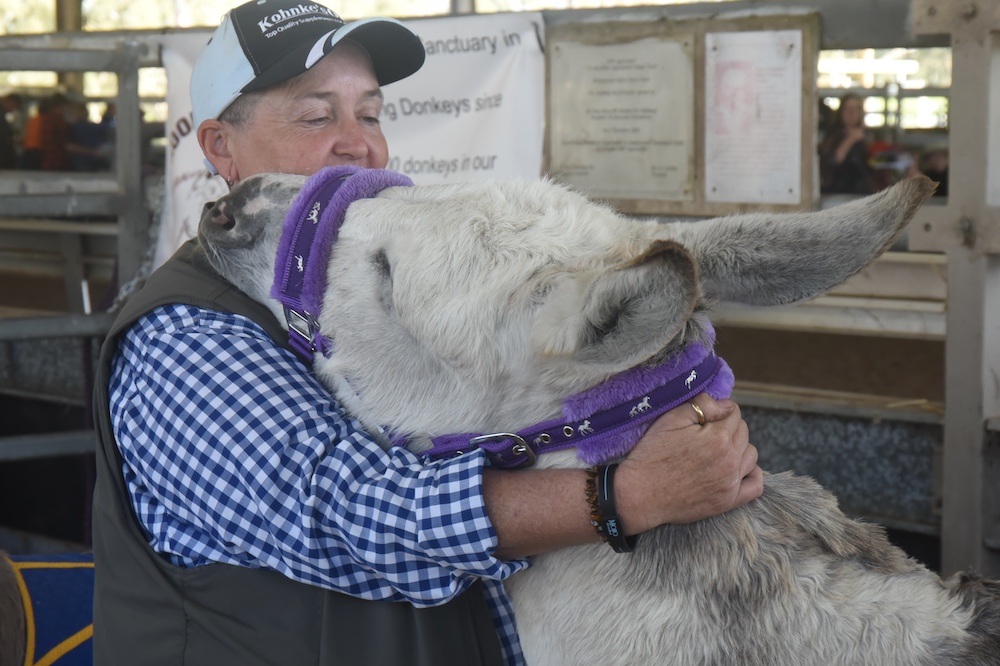
Back in the 1950s, as Sandy tells it, her grandfather owned a ranch around Terrey Hills in Sydney and ran a rodeo ground there. Chuckwagon racing brought the punters, and clowns would keep them amused during the halftime break, using donkeys for comic relief as part of the act.
�That�s how my mum got into donkeys,� she says, �because it was her job to look after them. When she married Dad and they bought a farm of their own, there was always a need for donkeys. Mum researched donkey welfare, and donkey care and conservation � now she�s quite knowledgeable and has written a few books.�
A need for donkeys? What roles do donkeys play on a farm? �They�re such useful animals,� says Sandy. �A lot of thoroughbred breeders will use a donkey by putting it in with their healing foals to help calm them down. Donkeys have a very calming nature about them. Of course, I�m not talking about a $50 wild donkey that�s probably never seen a fence before. We�re talking about a quieter animal that has been educated on this kind of work.
�At the Royal Easter Show, those big bulls walking in led by a five-year-old child into the arena to be judged� well, most of the time those bulls have been taught how to lead by a donkey. They put a calf collar on the bull calf and the donkey, put it in a round yard under watchful conditions, and let that donkey drag that calf around. Whatever that donkey will do, that calf will do the same.
�Train your donkey right,� she says, �and your donkey will train your bulls and calves.� Then there are guard donkeys. Being very territorial, donkeys like to get rid of dingoes and wild dogs in a similar vein to alpacas; being social creatures, they naturally bond with the herd they�re tasked with protecting.
�If you have two donkeys being a pair, those two donkeys will be over in one paddock, while your cattle are over elsewhere with the dogs. Donkeys won�t care because they�re together,� says Sandy. �But if you have one donkey, it�s lonely, so it�s going to stick with the herd.�
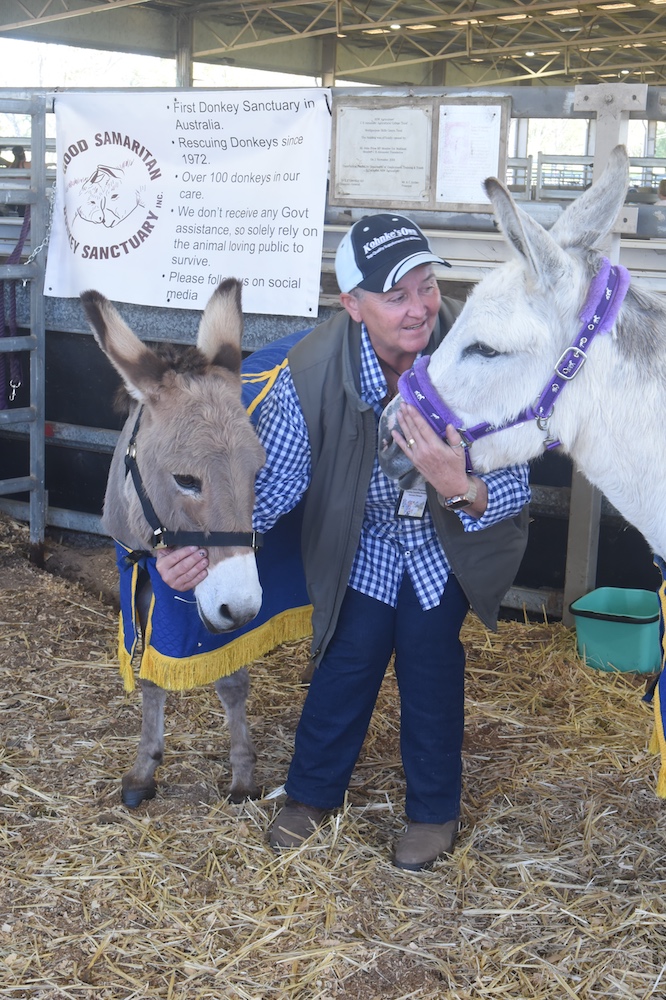
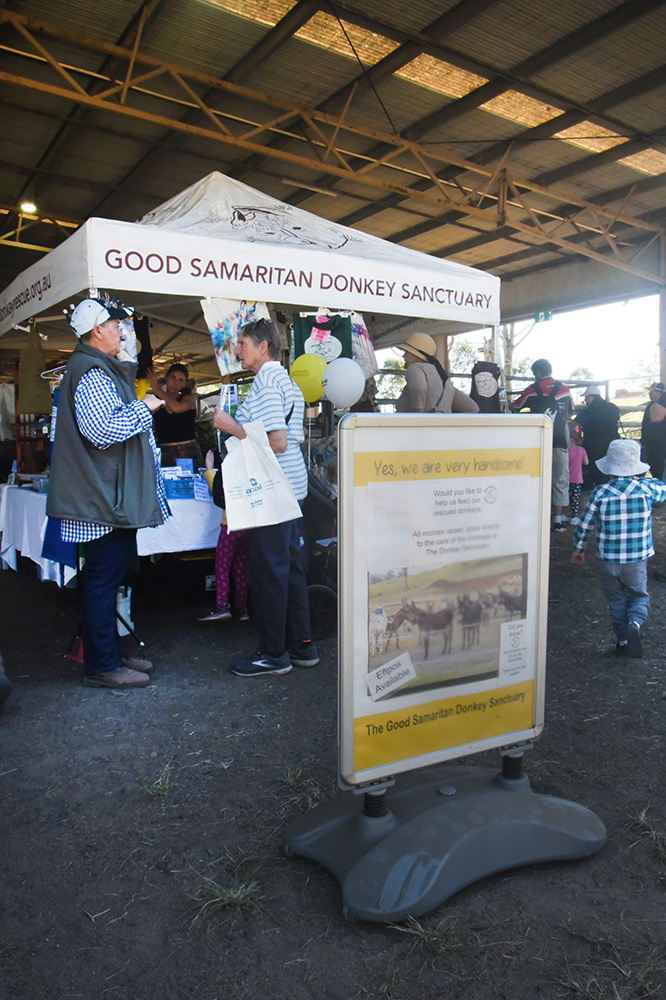
No wonder then that Good Samaritan Donkey Sanctuary has a long waiting list for farmers wanting one of her rehomed rescue donkeys � especially because she offers education, and helps farmers with understanding the particular knack needed to look after each animal she�s put so much effort and money into rescuing. And here�s where the logistics get tricky.
Sandy might travel to Tasmania one month, then up to the Northern Territory the next, organising road transport in each place to bring a donkey back to her operations in NSW. She has well-wishers all over the country giving paddock space to her donkeys-in-transit, but the costs of running it all are still a major roadblock.
�Mum started this in 1972, and it grew until it was a registered charity by 1990. But the government doesn�t help many animal charities � horse rescue, goat rescue, donkey rescue� we don�t get any assistance, and we rely on the general public to survive,� says Sandy.
“But the roadblock is also time, because I�ll only do this if I do it properly. I say if you want a donkey, you need to come and volunteer with me first. I�ll see how experienced you are and how capable you are of handling an animal.
�Then once I�ve seen people, I go and check their property to make sure it�s OK. At the moment my waiting list is more than 150 people, nearly all approved homes wanting donkeys.�



